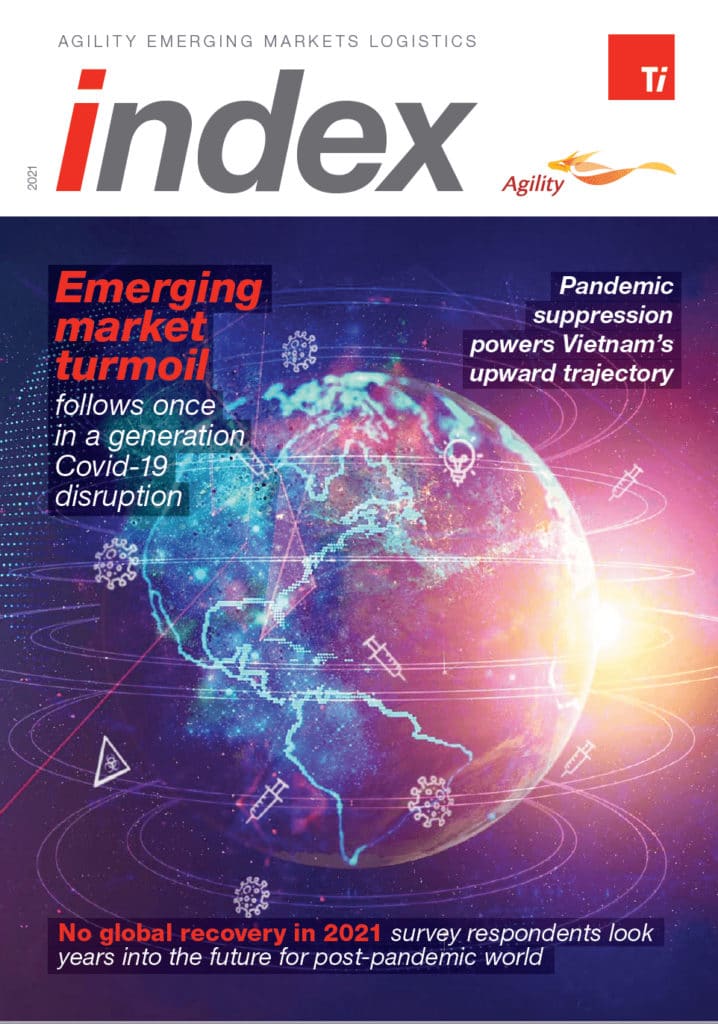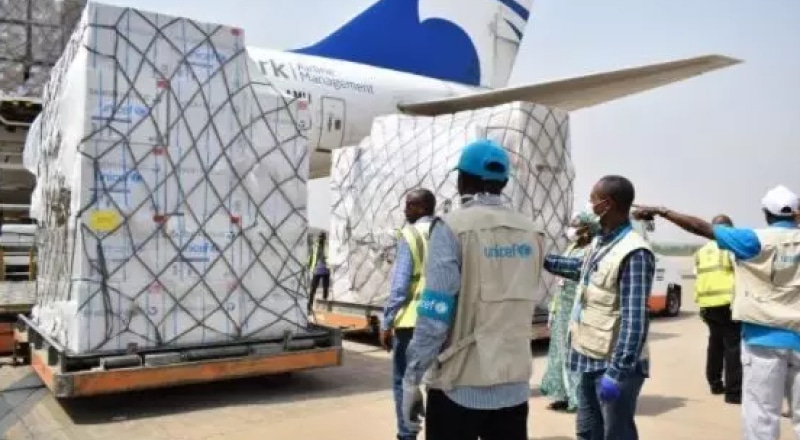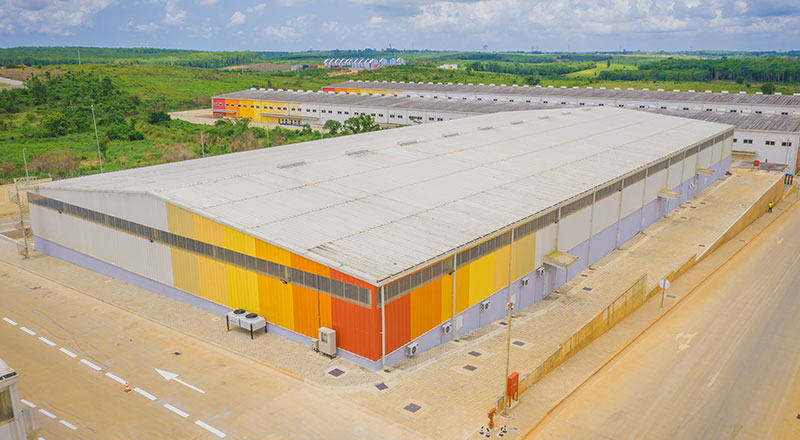Arbitration panel ruling signals “perils” of investing in Iraq
KUWAIT – February 22, 2021 — Agility, a leading global logistics provider, said foreign investors “should think carefully about the perils of investing” in Iraq, following a ruling by an international arbitration panel to deny its claims that Iraqi officials expropriated $380 million invested by Agility in an Iraqi telecom company.
The ruling, by a panel constituted by the International Centre for the Settlement of Investment Disputes (ICSID), involved Agility’s claims that Iraq expropriated its investment in Korek Telecom, and denied it due process and fair and equitable treatment in breach of the bilateral Kuwait-Iraq investment treaty.
Notably, the ICSID panel denied Agility’s claims without investigating or considering evidence of corruption by key members of Iraq’s Communications & Media Commission (CMC).
Agility said: “The ICSID tribunal has sent the message — not only to the Republic of Iraq, but to the international community of civilized nations — that states can expropriate investments without providing compensation to their foreign investors. This was a regrettable decision, and Agility believes that foreign investors would be well-served to think carefully about the perils of investing in a country such as Iraq which continues to rank among the most corrupt countries, as determined by Transparency International.”
In February 2017, Agility filed its claims with the ICSID, a World Bank organization that serves as a forum for investor-state dispute resolution. The panel was comprised of Chairman Cavinder Bull and members John Beechey and Sean Murphy.
Agility described Monday’s ICSID panel ruling as “fundamentally flawed” because it:
- Refused to address the merits of the regulatory decision itself, claiming lack of jurisdiction.
- Failed to consider or investigate incontrovertible documentary evidence confirming the corruption and payment of bribes by Sirwan Barzani to the senior-most commissioners of the CMC: Ali Al-Khuwaildi, and Dr. Safa Al Rabiee.
CMC corruption, reported widely in the press, including The Financial Times, was not investigated by the ICSID panel or by the Republic of Iraq. Al-Khuwaildi continues to lead the CMC, seemingly immune from any responsibility.
- Sided with the Republic of Iraq on factual matters, despite the fact that the Iraqi government provided no fact witnesses and virtually no documentary evidence.
- Summarily denied Agility’s requests for protection of the identity of its Iraqi witnesses, even in circumstances where Agility’s employees were arbitrarily detained, interrogated and threatened by Iraq’s secret police during the proceedings.
- Failed to address critical arguments or provide reasons for the decisions in its ruling.
To date, there have been four claims against Iraq filed with the ICSID. Three of those claims have been in connection with the actions of the CMC, and three stem from investments in companies based in the semi-autonomous Kurdish area of northern Iraq. ICSID tribunals have failed to hold Iraq liable for any of these claims, raising further doubts about what protections ICSID tribunals actually provide in holding states accountable for breaches of their treaty obligations.
Agility is currently considering its options to apply for annulment of the decision.
Separately, Agility is also moving expeditiously to pursue claims of more than $700 million directly against Korek, Sirwan Barzani and others, pursuant to a separate arbitration being conducted pursuant to International Chamber of Commerce rules.
In its annual Emerging Markets Logistics Index Agility says the global recession and COVID-19 pandemic disrupted supply chains and forced logistics professionals to adapt to new realities.
Originally published on CNBCAfrica.com
Pandemic fallout to weigh on global economy even as some regions rebound, survey indicates
BAAR, Switzerland – February 9, 2021 – Supply chain industry executives do not foresee a global economic recovery until 2022 or beyond, despite an expectation that Asia, North America and Europe will rebound this year from the downturn triggered by the COVID-19 pandemic.
Of 1,200 industry professionals surveyed for the 2021 Agility Emerging Markets Logistics Index, 51.5% say they don’t expect a full recovery until 2022-2024. They see Latin America and Sub-Saharan Africa as the last regions to bounce back.
The survey is part of the 2021 Agility Emerging Markets Logistics Index, the company’s 12th annual snapshot of industry sentiment and ranking of the world’s 50 leading emerging markets.
The Index is a broad gauge of countries’ competitiveness based on their international and domestic logistics strengths and business fundamentals — factors that make them attractive to logistics providers, freight forwarders, shipping lines, air cargo carriers and distributors.

In 2021, China and India remain atop the overall Index. Vietnam leaped to No. 8, up three spots, as Asia-Pacific and Gulf markets dominated the top 10. Nigeria rose five spots to No. 30, the highest climb for a Sub-Saharan Africa country in the 12 years of the Index. Gulf countries outperformed most others in business climate, but eight Latin America markets improved their business fundamentals rankings. Malaysia and Nigeria made the most notable upward moves in domestic logistics; Turkey, Brazil, Morocco, Ukraine, Kenya and Myanmar made progress in international logistics competitiveness.
In the survey, logistics executives indicated they see the duration of the pandemic as the biggest factor in determining when global economic activity will return to 2019 levels, viewing U.S.-China trade relations, Brexit, protectionism and other factors as secondary.
“The economic disruption caused by the pandemic is not behind us. Lockdowns and shipping challenges will constrain consumer and business activity through much of 2021,” says Chris Price, CEO of Agility Global Integrated Logistics (GIL). “The companies, markets and regions poised to recover most quickly are likely to be those using digital technology to collect data, share information, get supply chain visibility, and transact with customers and stakeholders.”
How are industry executives trying to protect their supply chains? By a two-to-one margin, they are speeding up adoption of technology and online business capabilities (41.3%) vs. choosing to move production through multi-shoring, near-shoring or reshoring strategies (21.9%).
Logistics executives felt disruption across the entire supply chain in 2020, saying they struggled to cope with port congestion (19.6%), transportation capacity (18.4%), supplies of parts and inputs (16.9%), distribution and delivery (16.1%), maintaining international operations (15.1%), and storage (13.8%).
In their own operations, industry executives say the most acute pain points were planning and forecasting for both supply and demand. Managing orders and cash flow were the areas next most affected by pandemic.
Despite their caution, industry executives are feeling opportunistic about emerging markets. More than half (52.0%) of respondents say they plan to increase business activity in developing markets or say they have more confidence in emerging economies. Only 19.5% say they are less confident in emerging markets.
2021 Index and Survey Highlights
- Even when they consider easing dependence on China, few companies plan to bring manufacturing jobs back home. Only 7.8% of industry executives say relocating production from China would mean reshoring to their home countries. Vietnam (19.6%), India (17.4%) and Indonesia (12.4%) are the leading choices for relocation, followed by Thailand (10.3%) and Malaysia (9.6%), according to those surveyed.
- While total cost is driving overall shifts in production supply chains, today low-cost labor is barely a consideration for emerging markets investment — with only 2.2% of industry executives saying it’s important. Executives say the most important factors are government bureaucracy and regulation (25.8%); infrastructure quality (14.1%); and supply of skilled labor (8.0%). As companies examine new production locations, they say their biggest concerns are inadequate infrastructure (14.5%) and additional cost (13.5%).
- Of the executives surveyed, 19.1% say 2020 sales decreased as a result of the pandemic. But only 9.4% say COVID-related employee safety measures have decreased efficiency.
- The sustainability movement has momentum. More than a quarter (26.9) of executives surveyed say their companies are boosting implementation of environmentally sustainable practices in the wake of the pandemic. Another 45.2% say their plans are unchanged, suggesting they have no intention of retreating from sustainability commitments.
- The most competitive emerging markets are manufacturing powerhouses in Asia and the business-friendly economies in the Gulf region. From Asia, China (1), India (2), Indonesia (3), Malaysia (5) and Vietnam (8) made the top 10. Gulf nations United Arab Emirates (4), Saudi Arabia (6), Qatar (9) also ranked in the top 10. Mexico came in at 7th; Turkey was No. 10.
- In Latin America, Mexico is the strongest emerging market, ranking 7th overall. Argentina (36) and Venezuela (50) continue to be plagued by chronic economic dysfunction. Notably, though, eight countries in Latin America improved their business fundamentals: Uruguay, Mexico, Peru, Colombia, Ecuador, Brazil, Paraguay, and Bolivia. The region’s best business climate is in Chile, which ranks 5th out of 50 countries in that category.
- Nigeria improved its competitiveness more than any country in the 2021 Index, moving up five spots to No. 30, the highest climb for any market in Sub-Saharan Africa in the 12 years of the Index. Nigeria improved its relative position in all three areas of the Index: business climate, international logistics and domestic logistics.
- The countries improving their domestic logistics strengths the most were Malaysia, Nigeria, Vietnam, Iran, Uruguay, Myanmar and Cambodia. The biggest strides in international logistics came from Morocco, Ukraine, Kenya, Myanmar and Paraguay.
Transport Intelligence (Ti), a leading analysis and research firm for the logistics industry, compiled the Index.
John Manners-Bell, Chief Executive of Ti, says: “The strength of the Agility Emerging Markets Logistics Index has always been to differentiate between those emerging markets which demonstrate resilience in the face of adversity and those which are more fragile. This year is no exception. Although some – especially China and Vietnam – have been able to rebalance around domestic industrial and consumer demand, the majority are still highly dependent on international markets and investment. A lack of global demand, combined with the breakdown of air and sea logistics networks, has had severe consequences for these economies and societies. As the COVID crisis finally unwinds over the next two years, those most resilient will bounce back the fastest. Inevitably, those which have failed to embrace market, trade, governmental and social reforms will be hardest hit by the fallout from the pandemic.”
2021 Agility Emerging Markets Logistics Index: www.agility.com/2021index
New LTL and FTL service to benefit Gulf businesses, consumers
KUWAIT – February 7, 2021 – Agility, a leading global logistics provider, and its digital innovation arm Shipa, a trusted last-mile delivery and e-commerce logistics player, announced the launch of a bonded, express road freight network to connect businesses and consumers across the GCC.
The new service provides customers with less-than-truckload (LTL) and full truckload (FTL) options and a fast, cost-effective way to ship packages, pallets or containers of goods with daily departures and scheduled pickups in the UAE, Saudi Arabia, Oman, Kuwait and Bahrain.
The service draws on the network and expertise of the Gulf’s leading logistics provider. Agility’s warehousing footprint is the GCC’s largest and includes world-class facilities in the UAE, Saudi Arabia, Oman, Kuwait and Bahrain, that are supported by teams of customs clearance experts. Agility owns one of the region’s largest road fleets and provides online tracking for parcels and other cargo. Shipa specializes in e-commerce and efficient last-mile delivery.
Express road freight provided by Agility and Shipa offers parcel tracking throughout the GCC and includes value-added services including temperature-controlled transportation; merge-in-transit; just-in-time delivery; reverse logistics; and control-tower management. It also will help shippers deal with undelivered parcels that must be returned to fulfillment centers. The bonded road freight service is licensed to carry cargo that has not yet been subject to taxes and duties in countries where applicable.
“The growth in e-commerce across the GCC has provided an opportunity to better serve customers with cost effective and reliable solutions,” says Henadi Al-Saleh, Agility Chairperson and leader of Agility’s corporate ventures arm. “E-commerce growth has been accelerated by the pandemic, and many companies have been transacting more of their business online. The Shipa-Agility partnership is aimed at helping these companies expand their businesses across the region and tap into new markets.”
Elias Monem, Agility Global Integrated Logistics (GIL) CEO for Middle East & Africa, says: “Agility is continuously looking to improve and expand what we offer to clients. This new service allows us to use our bonded and non-bonded infrastructure and our modern road fleet to provide customers with a faster, more cost-effective shipping and delivery.”
Centers help global, regional, local brands manage online orders and delivery across GCC
DUBAI – February 3 , 2021 – Shipa, the digital logistics and e-commerce arm of Agility, announced that is has opened two state-of-the-art e-commerce fulfillment centers in Dubai to manage online purchases and deliver to customers in the UAE, Saudi Arabia, Kuwait, Qatar and Bahrain.
The centers, in the Jebel Ali Free Zone and Dubai Investment Park, will help global, regional and local brands scale quickly to capitalize on the explosive growth in e-commerce and online sales across the GCC.
Shipa’s 60,000 SQM fulfillment center in the Jebel Ali Free Zone (JAFZA) and a second 20,000 SQM facility in Dubai Investment Park feature a combined 2,000 pallet positions and 10,000 bin locations. Both leverage the operational expertise and technology of Agility, a leading global logistics provider.
The centers offer bonded and non-bonded storage; inbound air and ocean stock replenishment; pick-and-pack services; customer technology integration and APIs; local and international returns services; and integration with cross-border and last-mile transportation vendors.
Shipa’s value-added services include e-fulfillment solutions scalable for all GCC markets, including access to more than 1.2 million SQM of GCC warehousing, customs brokerage, express bonded road services, and delivery options that include COD, pre-paid and payment-at-door. Shipa Delivery, Shipa’s last-mile delivery network, provides last-mile services in GCC markets.
Both facilities offer racked and bulk storage and use leading warehouse management systems. In addition, both adhere to rigorous Quality Health Safety, Security and Environment (QHSSE) standards and offer temperature-controlled storage, including frozen and refrigerated storage. The JAFZA facility offers bonded and duty-paid facilities to serve retailers with regional logistics requirements.
Globally and in the Middle East, the COVID-19 pandemic has accelerated growth in online sales and the shift from in-person purchases to digital commerce. Even before the pandemic, e-commerce and digital sales were growing at 21% a year in the GCC, where annual retail spending is estimated at $230 billion a year, according to global consulting firm Consultport.
Jeremy M. Skyrme, Chief Growth Officer for Shipa, said: “The brands that get the customer experience right in the UAE, Saudi Arabia and across the GCC will be the ones that succeed. Shipa’s world-class fulfillment centers give them services and solutions that ensure a fast, efficient, mistake-free flow of goods from first mile to last mile — the keys to guaranteeing customer satisfaction and repeat business.”
Shipa launched its fulfillment centers to meet the surge in demand brought about by the dramatic acceleration in e-commerce and online transactions. The need for efficiency and improved per unit productivity are important requirements for companies looking to trusted partners as they outsource fulfillment.
Hassan Mikail, Middle East CEO of Shipa Ecommerce said: “Shipa is widening their service offering to meet changing market dynamics. We are delighted that Shipa is leveraging the full scope of the Agility JAFZA and DIP capabilities to further support global and local businesses.”
Blank-check company will acquire, invest in sustainable businesses
KUWAIT – January 31, 2021 – Agility, a leading global logistics provider, announced that it has invested $35 million in Queen’s Gambit Growth Capital, a blank-check company that will target businesses offering sustainable solutions in clean energy, healthcare, financial technology, industrials, mobility and emerging technology.
Queen’s Gambit’s all-female management team is led by CEO Victoria Grace, a New York-based venture capitalist and Founding Partner of Colle Capital. The special purpose acquisition company is supported by an all-female Board with diverse industry experience.
Queen’s Gambit’s female-led management team “has the potential to tap into a differentiated network,” Tarek Sultan, Vice-Chairman of Agility said. “This is a chance to take a more inclusive view of opportunities in the market, and drive value in the process.”
Agility has a long-standing partnership with Colle Capital, having invested in multiple companies together. “Agility brings unique capabilities to the table, including our emerging market leadership, roster of 60,000 business customers, strategic partnerships, and experience of our Ventures team,” Sultan said.
Agility’s investment in Queen’s Gambit reflects the company’s commitment to sustainability and belief that innovative technology can yield both social and economic returns. “This is not a new position for us. We’ve been practicing stakeholder capitalism for more than a decade,” Sultan said. “Sustainable technology is one of our core investment pillars.”
Agility has been intensifying its long-standing commitment to the environment, sustainability and improved governance. It was recently added to the FTSE4Good Index Series, a resource used by investors to identify companies around the world with strong environmental, social and governance (ESG) practices.
Sub-group analysis shows three-day earlier discharge from hospital in low-risk patients hospitalized with COVID-19
KUWAIT – January 27, 2021
Dr. Reddy’s Laboratories Ltd. (BSE: 500124, NSE: DRREDDY, NYSE: RDY, NSEIFSC: DRREDDY along with its subsidiaries together referred to as “Dr. Reddy’s”) and Global Response Aid FZCO (GRA) today announced results from an Avigan study on moderate-severe hospitalized COVID-19 patients in Kuwait.
A sub-group analysis of the low-risk (low NEWS Score at admission) study cohort (n=181) demonstrated a 3 day earlier discharge in Avigan group compared to placebo group (8 days vs 11 days; p=0.0063) for time to hospital discharge secondary endpoint. This endpoint was predefined and showed statistical significance in a large portion of subjects in this study. Time to hospital discharge is the best endpoint to determine if Avigan has a pragmatic effect on patients’ duration of hospitalization, a factor that is relevant to global shortages in clinical resources and hospital beds induced by the global Covid-19 pandemic.
The findings point favorably towards the hypothesis that an antiviral drug like Avigan (or similar oral or injectable RNA polymerases inhibitor) may be effective as part of early treatment initiation in COVID 19 patients.
As a result of the favorable sub-group data, which are supported by similar results in Japan-based clinical trials and real-word studies, Dr.Reddy’s and Global Response Aid have agreed to expedite ongoing Phase 3 pivotal studies aimed at determining the efficacy of Avigan as an early treatment for COVID-19 patients with mild-to-moderate symptoms. Additional studies to evaluate the efficacy of Avigan as part of early treatment in COVID 19 patients have also been initiated, with the goal of alleviating symptoms and preventing disease progression before the infection requires hospitalization or other intensive interventions.
Other findings from the study of hospitalized patients with moderate-severe COVID 19 patients showed a one-day reduction in time to sustained hypoxia resolution for Avigan vs. placebo. Resolution occurred in seven days vs. eight days. However, the study did not achieve statistical significance thresholds, and was terminated. The full final data analysis of the 353 subjects who were part of the study of hospitalized patients will be available by end of February 2021.
The study of hospitalized patients was part of an overall clinical program for Avigan in Kuwait, which covered a spectrum of COVID-19 cases ranging from asymptomatic to severe, in both outpatient and in-patient settings.
The unprecedented magnitude of the pandemic requires innovative and bold collective action from multinational organizations, governments and industries for inclusive and efficient distribution of safe vaccines. With lives and livelihoods of millions across the globe depending on multiple stakeholders harnessing the power of collective action – whether in the field of health delivery, goods delivery or humanitarian service delivery, the logistics sector and UNICEF will play a central role in vaccine distribution.

Recognizing this need, 18 shipping, airlines and logistics industry CEOs, the Executive Director of UNICEF, and the President of the World Economic Forum, have signed a charter supporting UNICEF and COVAX countries in four main ways:
- Engage with governments, customs authorities, UNICEF and other UN Agencies, and NGOs
- Participate in operational asset and competency sharing
- Assign expertise to support governments, where requested by UNICEF
- Support UNICEF’s Global Vaccine Logistics Distribution, for COVID-19, with prioritization and solutions for international and in country distribution of vaccines and related supplies on behalf of the COVAX facility

